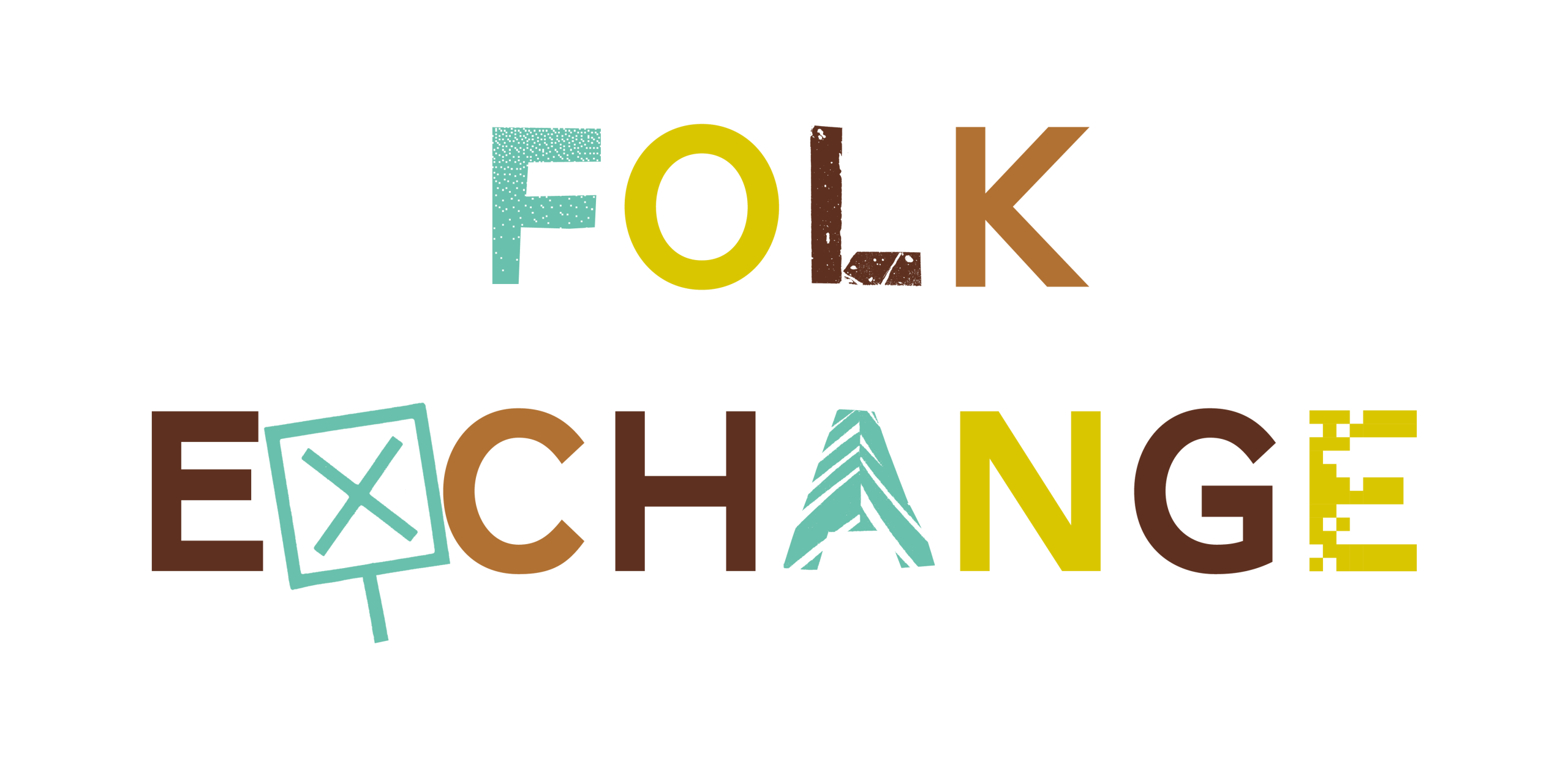Mothers Who Make

One Such Resilient Community: Mothers Who Make, Coventry
by Adele Mary Reed,
Mothers Who Make, Coventry Hub facilitator
Mothers Who Make Coventry Hub has been delighted to develop our relationship with Compton Verney this year through events with folk art curator Ila Colley and University of Warwick-based historian Dr. Tara Morton for the project Folk Exchange. Exploring themes of art activism, resilient communities and Suffrage, Hub members have been invited to partake in discussion, creativity and talks exploring feminist histories and futures.
This collaboration has been highly relevant and rewarding to us as a Hub.
Suffrage at the allotment
In the summer of 2025 we welcomed Ila and Tara to our allotment to open dialogue with Hub members and respond to the themes creatively. Enriching conversations took place following a hugely insightful and fascinating historical talk from Tara.
We found the reflections that could be made today, almost 100 years after women were first granted the right to vote, were just as urgent as ever – highlighting that the work of feminist activism is an ongoing process. Not only is bringing up children in these times complex and sensitive work, but making work as an artist also feels of huge responsibility and utmost necessity.
To conclude the discussions, we made cyanotypes with acetates featuring archive Suffrage imagery of pilgrimages, protests and banner-making from the LSE Women’s Library, as well as of the allotment, and of personal imagery submitted by members before the session. We printed these onto pre-coated watercolour paper and fabric to create cyanotype prints.
A pilgrimage to Compton Verney
Following on from this, we arranged a group trip to Compton Verney in October. This was a lovely, dynamic day which included a tour of the folk art collection with Ila where children were also welcome thanks to interactive craft elements within the gallery spaces, and tactile materials for very young ones.
Provisions like these make a huge difference to parents seeking to engage with the arts in a gallery context. We received further talks from Tara upon Suffrage histories and collective art-making for the ‘right to vote’ campaigns.
We took a walk around the Compton Verney grounds to learn about the pilgrimage camp of July, 1913 which occurred during a protest march between Carlisle and London organised by the National Union of Women’s Suffrage Societies, stopping at Compton Verney grounds at the welcome of Lady Willoughby de Broke.
Where next?
This incredible historical event, and intriguing questions posed by Ila throughout the day, set the tone for where we may go next exploring our relationship further.
These questions are:
- We are reimagining what the Folk gallery includes and our work around it. What would you like to see more of?
- Are you interested in the theme of Resilient Communities?
What do we think?
“I’m inspired and excited to find out how the story of the pilgrims at Compton Verney is expanded and interpreted.”
“It would be wonderful to re-enact the camp that the women stayed at to commemorate the event.”
“Tracing the history of the Suffragette movement physically by walking the space around CV and hearing those stories is so inspiring.
Issues of class as well as the power in organised movements really spoke to me.
Understanding more about women’s history and stories of political impact are something we should be making more of in the hope of continuing to ensure that women have a quality of life and opportunities that are not hindered by their gender, income or nationality.”
“I would like to see more work by women, work by children, work by immigrants, work by communities, collaborative work with authentic collaboration involved, work by less well known artists, work by people who’ve never exhibited before.
More textile work, more self-publishing and zines, more work around gardens and biodiversity.”
About Mothers Who Make
Mothers Who Make was founded in London in 2014 by theatre-maker, writer and mother Matilda Leyser, who felt a distinct lack of spaces for mothers to explore their own creative identities whilst care-giving.
Matilda describes it really eloquently when she says:
For me, at its heart, MWM is an ongoing piece of artist-led research into how to do these two things that I hold dear of caring for my children and sustaining my creative practice, because I still do not want to compromise on either of these – they matter too much, not just to me, but as things of vital importance in the world.
Mothers Who Make: Coventry
Our Coventry Hub opened at The Herbert Art Gallery & Museum in 2019. Over the course of the following six years, we have grown in all sorts of ways, from being a part of Coventry Biennial between 2019 – 2023, curating exhibitions at University Hospital Coventry & Warwickshire, to celebrating Shakespeare’s 460th Birthday for The Shakespeare’s Birthplace Trust as part of the strand ‘Women Who Made Shakespeare’. In 2023, we undertook our most ambitious project to date, creating a garden from scratch, a commission for the 4th Coventry Biennial. This collective project became known as Mothers Who Make a Garden.
Over the course of 2024 and 2025, through the support of Coventry based arts organisation Talking Birds, the Hub moved their garden from a Grade I listed courtyard in the city centre, to a beautiful, tucked away urban allotment not far from the city centre’s ring-road periphery. This has become a precious, living, experimental space for meeting and growing, a place where we gather to share in organically occurring peer support, a place to share the joys and challenges of mothering and making, and a place to host workshops and discussions.
Follow us on Instagram: @motherswhomakecov